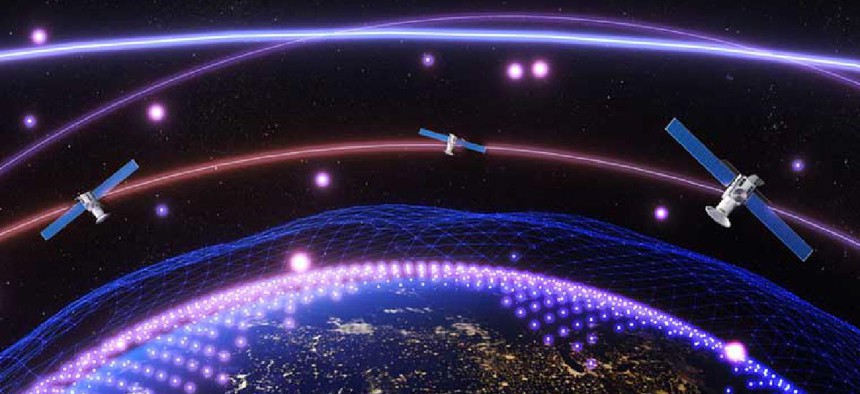DIU seeks tech to spot GPS disruptions

The Defense Innovation Unit is looking for situational awareness of potential disruptions to global navigation satellite systems.
The Defense Innovation Unit (DIU) is looking for commercial technologies that can provide situational awareness of potential disruptions to global navigation satellite systems, particularly those that result in spoofed location data.
Disrupted GPS signals -- which can be anything from delayed timing or data suggesting objects are in places where they're not -- aren't a new problem. However, concerns have risen with the number of location-enabled devices used in everyday life.
"The entire world is dependent on GNSS or GNSS-based systems, yet the GPS architecture and its users are vulnerable to denial and manipulation by adversarial actors," the solicitation states. "To date, intentional manipulation of GNSS operations have enabled nefarious activities, to include narcotics trafficking, unapproved operation of autonomous vehicles, illegal fishing, and sea-borne piracy."
The issue is more complex for the Defense Department, especially as more systems are interconnected to improve data sharing, according to Vice Adm. Jeffrey Trussler, the Deputy Chief of Naval Operations for Information Warfare and Director of Naval Intelligence.
"What I worry about ... is the things that I don't control or have insight into. And that's dependencies on larger networks, operated by the government or commercial [entities], that provide us information, like position, navigation and timing," Trussler said Aug. 3, during a panel discussion on cyber threats at the Sea Air Space annual conference in National Harbor, Md.
"You can have the greatest war machine ever put to sea, but somehow it gets some misinformation -- not a critical hack or something to the machine itself, but something that supplies the machine information -- that could really throw it off vector. That's what I worry about."
The DIU is looking for data sources, interference analytics and open output schemes that can provide a "near-real-time, common operating picture." Additional areas of interest include GNSS denial and disruption-recovery capabilities, deception techniques for marine vessels, detection of incorrect positions and solutions tailored for the continental U.S.
Responses are due Aug. 23.
This article was first posted to FCW, a sibling site to GCN.






